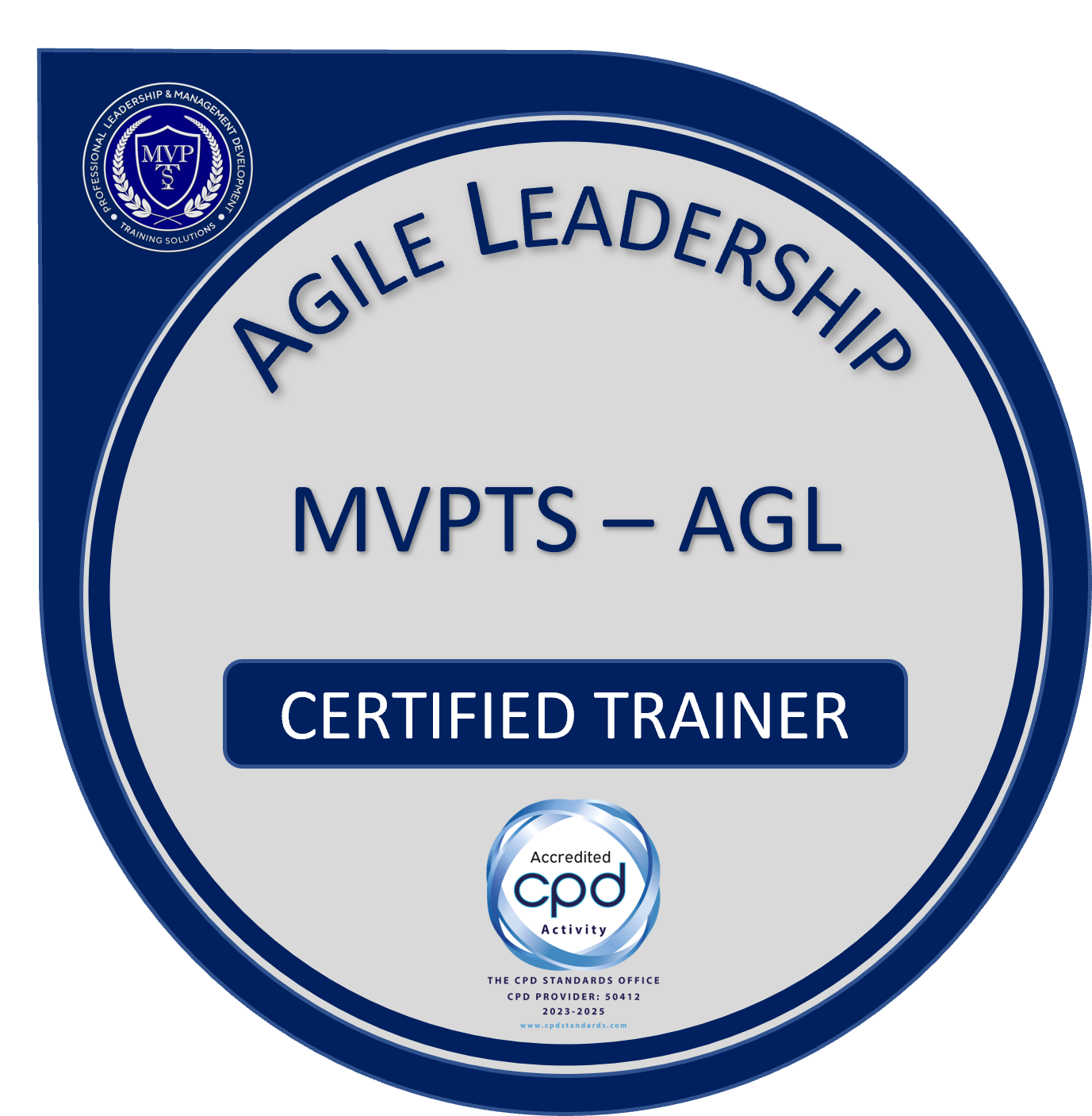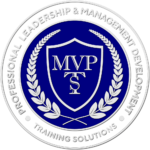Certified Master of Agile Leadership

Course Description
Title: Certified Master of Agile Leadership in Rapidly Evolving Industries
Immerse yourself in the dynamic realm of “Agile Leadership in Rapidly Evolving Industries” through our comprehensive certification course. Explore foundational principles, core concepts, and the alignment of leadership theories with agile practices. Master adaptive strategies for decision-making in fast-paced environments, empowering teams to thrive amidst transformations with innovation, ownership, and collaboration. Communication takes center stage as you foster transparency, align teams, and facilitate open information flow. Delve into Agile Leadership’s role in building team resilience, nurturing adaptability, and honing conflict resolution skills. With a focus on remote collaboration, this course equips you to lead geographically dispersed teams effectively. Immerse yourself in real-world case studies showcasing Agile Leadership triumphs, providing practical insights for your journey towards becoming a proficient and adaptable Agile Leader.
Topics Covered
1. Module I – Understanding Agile Leadership Principles
- Introduction to Agile Leadership Concepts
- The Agile Manifesto’s Influence on Leadership
- Core Values and Principles of Agile Leadership
- Adapting Leadership Theories to Agile Contexts
2. Module II – Navigating Dynamic Environments with Agile Leadership
- Understanding Dynamic Environments in Leadership
- Strategies for Leading Agile Teams in Dynamic Conditions
- Incorporating Feedback Loops in Agile Leadership
- Balancing Stability and Flexibility in Agile Leadership
3. Module III – Embracing Change Through Agile Leadership
- Leading Organizational Change with an Agile Mindset
- Overcoming Resistance to Change through Agile Approaches
- Fostering a Change-Ready Culture with Agile Leadership:
- Case Study: Successful Organizational Transformation with Agile Leadership
4. Module IV – Agile Leadership’s Role in Team Resilience
- Developing Team Resilience through Agile Leadership Practices
- Nurturing Psychological Safety for Agile Team Resilience
- Agile Techniques for Team Adaptation and Skill Development
- Maintaining Morale and Productivity in Challenging Times
5. Module V – Communication Strategies for Agile Leadership
- Open Communication Channels in Agile Leadership
- Effective Listening Techniques
- Transparent Reporting
- Bridging Communication Gaps between Leadership and Teams
6. Module VI – Empowering Teams with Agile Leadership
- Delegating Authority and Decision-Making in Agile Teams
- Creating an Environment of Accountability
- Nurturing Innovation within Teams
- Team Commitments and Agreements for Agile Success
7. Module VII – Cultivating a Culture of Agile Leadership
- The Role of Agile Leadership in Shaping Organizational Culture
- Agile Leadership and Performance Metrics
- Agile Leadership and Quality Assurance
- Agile Leadership and Strategic Alignment
8. Module VIII – Agile Leadership Styles for Dynamic Environments
- Situational Leadership and its Relevance in Agile Contexts
- Adapting Leadership Styles to Team Maturity and Needs
- Balancing Direction with Empowerment in Agile Leadership
- Case Study: Applying Different Leadership Styles in Agile Environments
9. Module IX – Decisive Strategies in Agile Leadership
- The Art of Swift Decision-Making in Agile Leadership
- Using Data to Drive Agile Decision-Making
- Informed Risk-Taking in Agile
- Decision Frameworks for Balancing Speed and Prudence
10. Module X – Agile Leadership for Remote Teams
- Addressing Unique Challenges of Leading Remote Agile Teams
- Virtual Team Building and Sustaining Team Cohesion
- Leveraging Technology for Effective Remote Agile Leadership
- Lessons from Remote Agile Leadership Success Stories
11. Module XI – Conflict Resolution through Agile Leadership
- Embracing Constructive Conflict within Agile Teams
- Agile Techniques for Managing and Resolving Conflicts
- Strategies for Rebuilding Trust After Conflict
- Turning Conflict into Learning Opportunities in Agile Contexts
12. Module XII – Agile Leadership in Human Resource Management
- Transforming HR Functions with Agile Leadership
- Talent Acquisition and Recruitment
- Agile Approaches to HR Policies and Procedures
- Enhancing Employee Experience through Agile HR Practices
How to use this Certification
Certifications in Agile Leadership can significantly enhance your skills and credibility in the field. Here are 10 ways to leverage such a certification:
- Enhance Professional Credibility: Displaying an Agile Leadership certification on your resume and LinkedIn profile enhances your professional credibility, demonstrating to potential employers and colleagues your command of Agile concepts and procedures.
- Lead Agile Transformations: Use your certification to take a leadership role in guiding organizations through Agile transformations. Your knowledge can be crucial in helping teams and departments transition to Agile methodologies.
- Coach and Mentor Teams: With an Agile Leadership certification, you can take on coaching and mentoring roles within Agile teams. Your expertise can help teams navigate challenges and optimize their Agile processes.
- Implement Agile Best Practices: Apply Agile best practices in your day-to-day work, incorporating Agile methodologies into project management, product development, and other business processes.
- Facilitate Agile Workshops and Training: Leverage your certification to conduct Agile workshops and training sessions for teams and organizations. This may promote a continuous improvement culture and help people grasp Agile ideas on a wider scale.
- Drive Continuous Improvement: Use your Agile Leadership certification to champion the principles of continuous improvement within your organization. Lead initiatives that promote feedback, reflection, and adaptation to improve processes and outcomes.
- Collaborate Effectively with Cross-Functional Teams: Apply your Agile Leadership knowledge to foster collaboration and communication among cross-functional teams. Dismantle organizational silos and foster a collaborative culture that is consistent with Agile principles.
- Improve Time-to-Market and Productivity: Employ Agile methodologies to enhance time-to-market for products and improve overall productivity. Showcase your ability to deliver value to stakeholders quickly and adapt to changing requirements.
- Demonstrate Change Management Skills: Use your certification to demonstrate proficiency in change management. Showcase your ability to lead teams and organizations through the challenges of adopting Agile methodologies and adapting to change.
- Contribute to Agile Communities: Participate in real and online Agile communities to exchange experiences, ideas, and lessons. Networking with other Agile professionals can open up opportunities for collaboration and learning from best practices.
Remember, earning a certification is just the beginning. The real value comes from actively applying the knowledge gained and continually seeking ways to improve and adapt in the dynamic Agile environment.
Target Audience
- Mid-Level Managers in Agile Environments: For managers seeking to enhance their leadership skills in agile contexts and lead teams through constant change.
- Organizational Change Leaders: Designed for professionals driving organizational transformations, equipping them with agile leadership strategies for success.
- Team Leads and Supervisors: Ideal for those overseeing teams, empowering them to foster resilience, communication, and innovation in agile settings.
- Project Managers Transitioning to Agile: Tailored for project managers shifting to agile methodologies, helping them adapt their decision-making and leadership styles.
- HR and Learning & Development Professionals: Suitable for HR and L&D specialists aiming to cultivate agile cultures and support teams in dynamic environments.
- Entrepreneurs and Startup Founders: Catering to startup leaders, enabling them to infuse agile leadership practices to rapidly adapt and thrive.
- Remote Team Managers: Geared towards leaders managing remote teams, providing strategies for sustaining collaboration and cohesion.
- Experienced Agile Practitioners: Beneficial for seasoned agile practitioners looking to refine their leadership approach and mentor others in agile settings.
- Change Management Consultants: Crafted for consultants guiding organizations through change, enhancing their toolkit with agile leadership expertise.
- Leadership Development Professionals: Suitable for professionals focused on leadership development, incorporating agile principles into leadership training programs.
Learning Objectives
- Understand the foundational principles and values that underpin Agile Leadership.
- Explore strategies for adapting leadership approaches in response to continuous change and dynamic environments.
- Examine the role of Agile Leadership in facilitating and driving successful organizational transformations.
- Develop techniques to build team resilience and maintain productivity amidst fluctuating conditions.
- Gain insights into effective communication strategies for fostering transparency, alignment, and active listening within teams.
- Empower teams through the application of Agile Leadership principles, encouraging innovation and shared ownership.
- Learn how to cultivate a culture of adaptability, continuous learning, and experimentation within your organization.
- Explore different Agile Leadership styles and their appropriate application in various situations.
- Acquire decisive strategies for making informed and swift decisions in fast-paced settings.
- Develop specialized skills for leading remote teams effectively, nurturing collaboration, and maintaining team cohesion.
Learning Outcomes
- Demonstrate a comprehensive understanding of the foundational principles and values that define Agile Leadership.
- Apply adaptive strategies to navigate dynamic environments, effectively leading teams through continuous change.
- Successfully lead and support organizational transformations using Agile Leadership principles, fostering positive outcomes.
- Build resilient teams that thrive in fluctuating conditions, promoting a culture of resilience and flexibility.
- Employ effective communication techniques to foster transparency, alignment, and meaningful engagement among team members.
- Empower teams to innovate and take ownership of their work, resulting in enhanced collaboration and outcomes.
- Encourage an environment that is flexible, open to new ideas, and experimental in order to advance organizational development.
- Flexibly employ various agile leadership styles based on situational needs, leading to effective leadership outcomes.
- Make well-informed decisions swiftly in fast-paced environments, contributing to agile and decisive leadership.
- Lead remote teams with competence, sustaining collaboration, cohesion, and achieving organizational goals in distributed settings.
